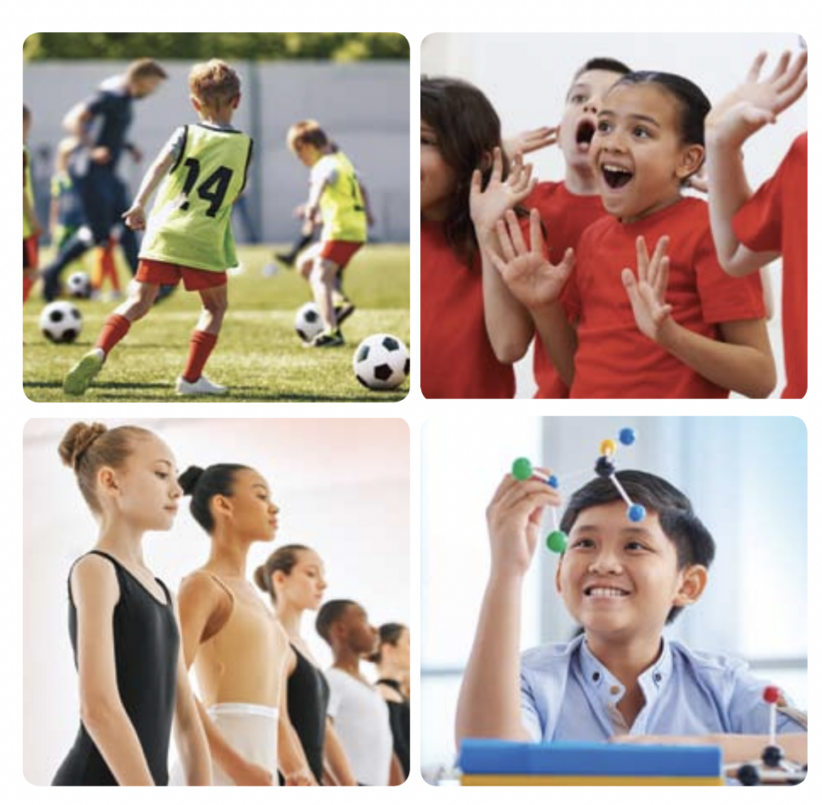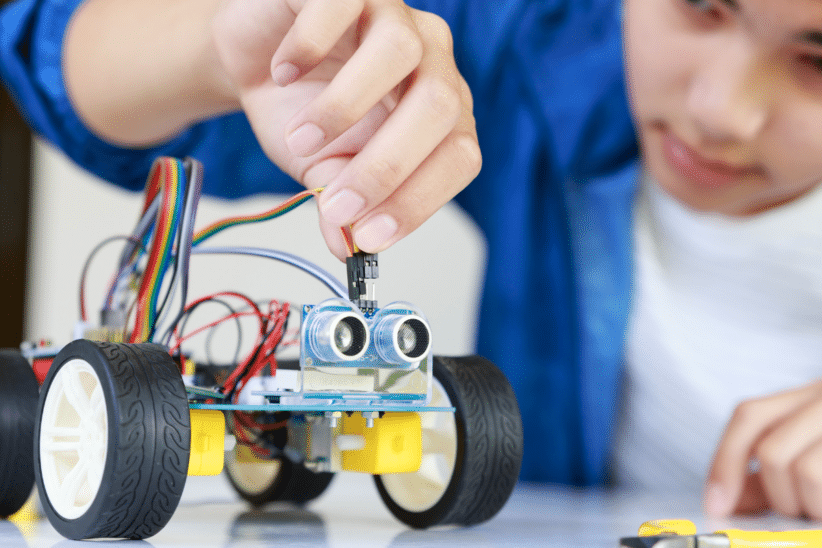Is it really possible to teach our families how to be happy? According to certified happiness expert Dr. Christine Carter, happiness is a learned skill and, if practiced properly, it can lead to great success in life. Carter is currently a psychologist at UC Berkeley’s Greater Good Science Center and is the author of Raising Happiness: 10 Simple Steps for More Joyful Kids and Happier Parents. She recently spoke with us on how to bring joy into parenting and shares some of her own family’s secrets to happiness. Plus, scroll down to the bottom to see the fascinating results of Dr. Carter’s “Weekend State of Mind” survey in collaboration with Hampton Hotels!
How did you become interested in achieving greater happiness?
I’ve been studying happiness for a little over ten years now. I got my start looking at creativity and how organizations could foster creativity and imagination. What I found is that whatever social structure we’re a part of—a school, a business, or a family—influences the emotions that we feel. When I had children, my whole perspective changed from businesses to the family, and I realized that a lot of [skills are] learnable. We think of happiness as a personality trait, but it’s not. Happiness is a set of skills that we can learn ourselves and teach our children. So my interest in happiness came from a personal desire to raise happy children.
How did you develop your 10 steps for happiness?
It was academic and personal at the same time. I was pouring over all the new research in psychology, and looking through findings in neuroscience, anthropology, and sociology for anything related to happiness. So I was looking at particular cultures and asking: What makes happy people happy? When I was developing these steps, my oldest child was in kindergarten, and I had this audience of kindergarten moms, who everyday at pickup would ask their kids, “What did you learn today?” So I just picked the ideas that were the strongest in the research and were most practical for parents.
What’s been the most challenging of the 10 steps for families to incorporate into their lives?
I think everyone has their own challenges. Most of these things can become habit once they become part of your daily routine. For some people it’s easy to form a habit and for some people it’s going to be more difficult. For myself, I think that just staying in those good habits is the hardest since I’m always tempted to try something new.
Do you generally find that it’s easier for parents and adults to improve their happiness, or do you think it’s easier for children to do so?
I think youth and adult happiness are very similar. For example, practicing gratitude and being aware of what you feel grateful for will make both kids and adults happy. I don’t think it’s necessarily easier for one or the other, and I haven’t seen any research on that. What I do know is that children’s happiness is intimately tied with their parent’s happiness because emotions are contagious and parents are setting the routines and expectations for the children’s behavior.
What advice do you have for busy families to combat the weekday blues?
In our household we have “Wacky Wednesdays” where we have breakfast for dinner and my kids wear their pajamas. Occasionally, we’ll have our neighbors over. All of these activities trigger the weekend, like spending time with our friends and family, which we tend to do more often on the weekend. It’s one of the primary drivers of why we tend to feel happier and relaxed on the weekend. Getting together with friends and family signals to us that everything is okay and we are connected.
Another thing families can do is to look at the time of the week when we feel most anxious. For most people, it’s right after the weekend on Monday morning. Pick the time that you feel most anxious during the week and actively combat that anxiety by countering it with a positive emotion. My daughter reads a lot of joke books over the weekend, so on Monday mornings she likes to tell jokes. Inserting that little hit of positive emotions right at that time when your anxiety tends to peak can be a routine way to combat those weekday blues or jitters.
Do you find that planned activities (such as seeing a Broadway show) promote happiness more than unplanned activities (such as exploring the city for an hour)?
They promote happiness in different ways. Our society has shown a remarkable ability to schedule ourselves to the hills. For the most part, we don’t have a lot of unstructured time and we need a little bit of downtime everyday. Downtime contributes to our happiness, productivity, and physical health.
Scheduled activities on the other hand, can bring about an intense feeling of positive excitement and anticipation. If you look at the research on anticipation, the positive anticipation of something that we plan can often bring more positive emotions than the actual event itself. We’ve all experienced this in reverse, for example getting the feeling that an event wasn’t as fun as you thought it was going to be. If you flip that sentiment and have so much fun planning an activity, it matters less whether or not it meets your high expectations.
 What should parents do to keep their kids happy even when they’re not physically together, such as when children are at daycare or school?
What should parents do to keep their kids happy even when they’re not physically together, such as when children are at daycare or school?
We need to prioritize happiness for kids in institutions where they spend a lot of time: schools, activities, and people they hang out with. As parents we tend to select for success and not for happiness. We think that if we give our kids lots of lessons and if they go to the most prestigious schools that they will be successful in life and then be happy. That is totally backwards. When we select our kids’ environments based on emotional qualities, then we find that our kids tend to better fulfill their potential and are more likely to be successful.
Can you share any personal experiences in planning happiness with your own family?
I regularly ask my kids two questions at dinnertime: What is one kind thing someone did for you? And what is one kind thing that you did for somebody else? Just asking those two kindness questions can really change children’s perspectives on what leads to happiness.
Another thing I’ve been doing since my kids were two years old, is ask my kids three good things about their day before they go to sleep. It can be good things that they did or good things that happened to them. I started it because…we should have a positive ending to our day. When my youngest was four years old, she was sitting on my lap one day, braiding my hair, and said, “Mommy, this is going to be one of my three good things.” I realized this question allows kids to see their world though that positive lens. It enables them to feel grateful and savor positive emotions while it is happening, and then relive it later.
To learn all about Dr. Carter’s 10 steps to reaching happiness, visit raisinghappiness.com





















